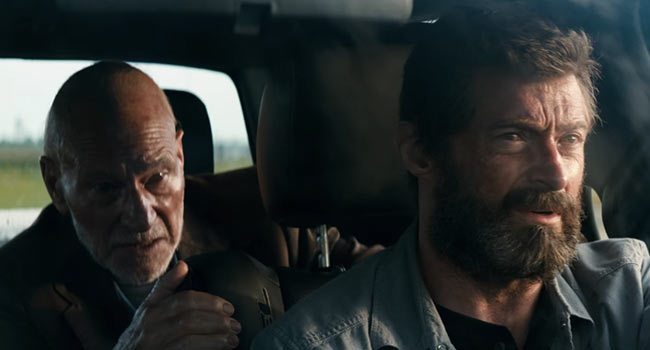It is the end of an era. “Logan” is the last appearance of Hugh Jackman as Wolverine.
Now that we live under a deluge of superhero movies, it’s easy to forget that not long ago, few were taking comic book movies seriously. At the turn of the millennium they were campy at best and disasters at worst. But all that changed in 2000, when Bryan Singer’s “X-Men” leapt onto the scene with furious verve and revitalized the genre for years to come.
And that’s largely due to the tremendous talent of Hugh Jackman. The X-Men comics always featured an ensemble cast of characters and occasionally dedicated side series to fan favorite Wolverine, but the films went a step further and made the gruff antihero the protagonist from the beginning. Seven of the ten X-Men movies revolve directly around Wolverine, some finding ways to retrofit him into leading roles that he didn’t enjoy in the original stories.
This was at first because his tortured backstory is rife with mystery, but at this point we know all there is to know about Wolverine — eventually he was shoehorned into the franchise solely because Jackman is a force to be reckoned with in the role. That is not how “Logan” uses the character. “Logan” honors Wolverine just as much as Jackman has honored the character for the past 17 years, and the actor’s final touch is so definitive that it’s haunting. Start collecting tissues.
“Logan” loosely follows the plot of comic book “Old Man Logan”: it’s the year 2029 and mutants have been all but wiped out. An aged Logan with diminishing healing powers works as a limo driver, having given up on everything but alcoholism and taking care of a mentally deteriorating Charles Xavier at their hideout in the Mexican desert. He has no desire to take up the mantle of or even be recognized as Wolverine: in keeping with the series’ continuing allegory for rejection of The Other, this timely world is one of excessive borders and organized anti-mutant forces. Fallen, dirty, purposeless is the land of “Logan”.
That is, until a little girl with Wolverine’s powers shows up and shocks tenacity back into Logan’s crumbling spine. The film transitions into an action movie doubling as a grimly existential road trip, as Logan and Professor X drive the U.S. in search of the girl’s past and possible future. Familiar superhero movie pitfalls still abound — but even if the comic book brain hasn’t grown up, the tone and characters have with solemn intricacy.
The adult tone benefits from the movie’s R-rating. “Logan” has a tendency to show off its new rating with little justification (hey look! We have nudity and gore and drugs now!) But for the most part, the violent savagery and profane vices of Wolverine now feel truer to the character than any other film iteration. Director James Mangold does supreme work building this dystopian future: the mournful tone rings with consequences, mistakes and no second chances. Logan is a broken man; “Logan” a broken world. The darkness fits like fate.
The X-Men franchise has long been about balancing numerous character relationships. “Logan” concentrates that focus on two primary interactions: the bond between Logan and Charles, and Logan’s connection to young Laura. The character work is arresting — practically Shakespearean. Seeing such previously mighty characters so weak is heartrending (Patrick Stewart’s performance as an Alzheimer’s-riddled Charles Xavier is a sustained punch to the gut, and a highlight in his already illustrious career). The script plays these demoralized personalities off of each other in a brilliant symphony of hopelessness and absolution. This superhero story’s stakes are personal, and sometimes overwhelmingly emotional.
It’s a shame that the plot doesn’t stand as tall. Hidden beneath the movie’s mature aspects is an unsubtle narrative that spoon-feeds the viewer. Characters state exactly how they’re obviously feeling; giveaway lines make major turning points predictable — the connections between “Logan” and the classic movie “Shane” are hammered in with the force of Wolverine’s claws. The two overused templates for superhero movie villains — a reflection of the protagonist and an impersonal power-addict with vague motives — are both used. That’s getting tiring.
But as a complete work, “Logan” is a graceful sendoff for Hugh Jackman’s Wolverine, and without a doubt the best X-Men movie to date. I won’t even try to describe Jackman’s powerhouse finale performance: that you should see for yourself.
★★★★ (4/5)




